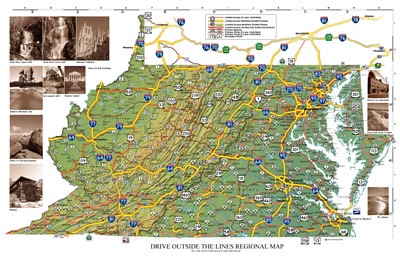By Newt Gingrich

By controlling our own energy production we can ensure better environmental safety. One only needs to look at countries like Haiti to see the folly of thinking restricted commerce will lead to environmental purity.
Two very large numbers are essential in the American public debate today. They are so big that they are almost inconceivable.
The first number is 15.5 trillion. That's a 14 digit number.
$15.5 trillion is the size of the U.S. national debt, more or less the amount the federal government owes individuals, organizations, and governments that have loaned money to it. To put this number in a more human perspective, it's roughly $50,000 for every person in the United States.
$50,000 is more than the U.S. median income, about $44,000. That means if a normal, working American worked an entire year and devoted his or her entire income to nothing other than paying off their share of the national debt, they still wouldn't pay off the full amount.
Today's national debt is so large that it is very difficult to imagine a solution. President Obama has added $4 trillion during his administration alone. That means the Obama administration in three years has added nearly 40 percent to the national debt.
The problem of balancing the budget and reducing the national debt didn't always seem so insurmountable. When I was Speaker, we balanced the budget for four straight years, resulting in real surpluses and paying down the national debt by $400 billion. When I left the speakership in 1999 the entire public debt was scheduled to be paid off by this year, 2012.
The government even began preparing for the possible difficulties this could cause the financial system, since if the U.S. paid off its entire debt there would be no more U.S. Treasury bonds. As NPR said in its story uncovering the secret report last year, the danger has clearly passed. Irresponsible Republican leadership in the early 2000s, when we never passed a single balanced budget, and the Democrats' explosion in spending and the size of government since meant the prospect of paying off the debt disappeared long ago.
Today the obvious means of paying off the national debt are all unpleasant. Both taxes (which take money from Americans directly) and inflation (which take it from us indirectly) would be very painful for the American people, making it less likely that anything will be done about this serious problem.
That's where the second very large number could come in: 1.44 trillion (a 13 digit number).
1.44 trillion is the number of recoverable barrels of oil estimated to be in the United States, waiting to be produced. That's about the amount of oil the entire world has consumed since the first well was drilled before the Civil War. In addition, we have an estimated 2.744 quadrillion (a 15 digit number) cubic feet of natural gas.
Much of these resources are on federal lands, meaning the American people own them.
In a recent interview with the Wall Street Journal, Harold Hamm, a major developer of the Bakken formation in North Dakota, said he calculated that “if Washington would allow more drilling permits for oil and natural gas on federal lands and federal waters, "I truly believe the federal government could over time raise $18 trillion in royalties."
That is more than our current national debt, the first number, $15.5 trillion.
This potential for new federal revenue without new taxes opens up a third possibility that is much less painful than taxes and inflation: the government could simply lease the rights to develop the energy resources in various tracts of federal land.
As Mr. Hamm's calculations suggest, we should not underestimate the potential of an American energy program to go a long way toward restoring America's fiscal health. Lease terms for producing oil and gas on federal lands, on-shore or offshore, include an agreement that companies will pay royalty shares on production to the government. For on-shore leases, the rate is one-eighth of production value; offshore, lease terms vary but range between 12 and 20 percent of the value produced.
In 2007, the federal government collected $9.4 billion in revenues on offshore drilling in the OCS. Considering only 2 percent of federal OCS lands are available for production, that would be $470 billion if it earned the same rate off all OCS lands.
Clearly, there is enormous potential revenue for the federal government locked up in lands we are currently doing nothing with, at a time of exploding deficits and fiscal downgrades.
Opening up American energy production would be a boon to cash-strapped state governments, as well. Revenue from on-shore resources is generally split 50/50 between the state and federal government. While revenue sharing with states is not yet standard for offshore drilling on federal lands, the few recent leases that have been permitted have included similar arrangements. In 2006, lease terms gave Gulf states a 37.5 percent share of revenues.
This expanded production of American energy would create millions of jobs and bring down the price of gasoline to $2.50 a gallon or less.
It tells you the scale of our domestic energy resources that revenue from one-eighth their value could eventually pay off our national debt of $50,000 per person. It tells you the extent of the Obama administration's extremism that it won't let us tap them.
Our Freedom Seeking Forefathers Would Agree
Centuries ago our ancestors risked everything to journey to a new land. The promise of freedom was strong and the cost was great but the ability to chart one's destiny led to the founding of our unique nation. Railroads followed canals to provide the ability to move about and unify our nation at the same time. The automobile added new flexibility to the lives of millions. A free people will both create and demand a society with a high level of mobility. This allows competitive markets and healthy free association.
Now we face unique challenges in maintaining our mobility. We've outsourced our energy provision for many years and now the bills are coming in! Oil is high for a number of reasons. The weak dollar puts us at a disadvantage as demand rises in places such as India and China. OPEC seems to know it needs to squeeze what it can out of the market now. Why are oil prices so high? Depending on who you listen to it may be a combination of all of the above, or any one factor in particular.
So it was refreshing to read Kathryn Lopez' Article on Solving the Energy Crisis [click to read]. She points out the need to pursue domestic resources, such as the Bakken and Colorado, while planning new technology to serve us in the 21st Century. We need to make our own energy again and the answer is in a diverse offering of new and already existing technology. Go to a large European or Japanese city and the electricity you use is likely from a nuclear power plant. We have enough experience with this technology to use it safely -- look at our Navy's sub fleet and you'll see a long track record with managing this type of power plant. Add wind, solar and better efficiency in utilization and I'll bet you are already feeling more optomistic.
There is a new engine for large trucks that runs more efficiently and uses natural gas. Of course that is a medium-range solution but that is better than short-sighted 'solutions' like 'tax holiday' and 'even-odd days' [remember gas rationing in the seventies]? A new generation of plug-in hybrids will come into being. E85 will likely be a force, but hopefully quota requirements will be replaced by market driven demand. Simple efficiency with existing technology will be a player as well. I have a little Mazda that can be driven smoothly and get close to 40mpg. No need to rush to replace that! Looking at today's oil-heavy transportation system it makes a lot of sense to diversify our technologies.
In the Nineteenth Century it was actually suggested in all seriousness that the Patent Office be closed since "everything that can be invented already has." That sentiment is less true today than it was when uttered then. Perhaps we will look back on the gas crisis of the beginning of this Century as the beginning of a new era of clean dependable mobility!
A Travel Map for a Brighter Time to Come

Regional Travel Map by Bob Kirchman.
Looking forward to a day when we as a nation produce our own energy [hey, gas stations might even give out free maps again!], I've created this regional travel map. Susan Allen [the Governor's wife] improved the official Virginia map by putting the mountains back on it. I think that was a really cool thing to do.
Until the oil companies grace us with free maps and USA produced fuel again, you can download the Journey Regional Map [click to read] and plan a few road trips.





No comments:
Post a Comment